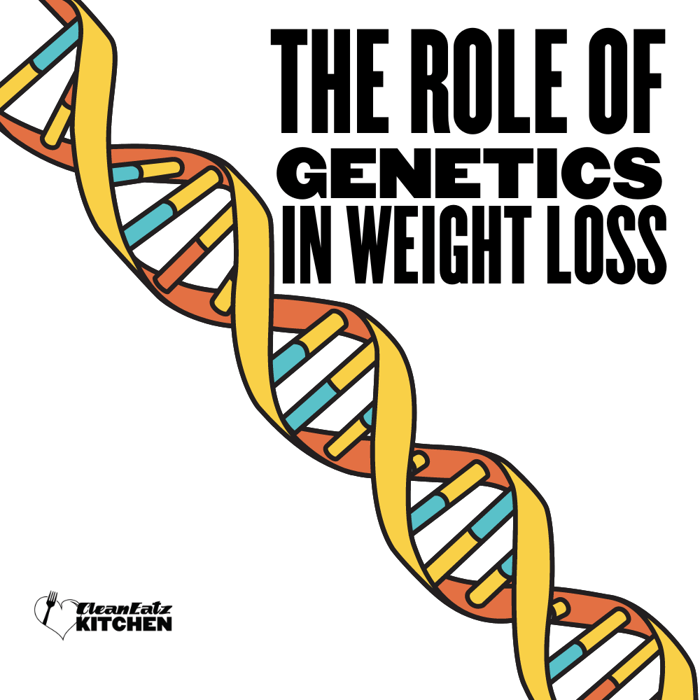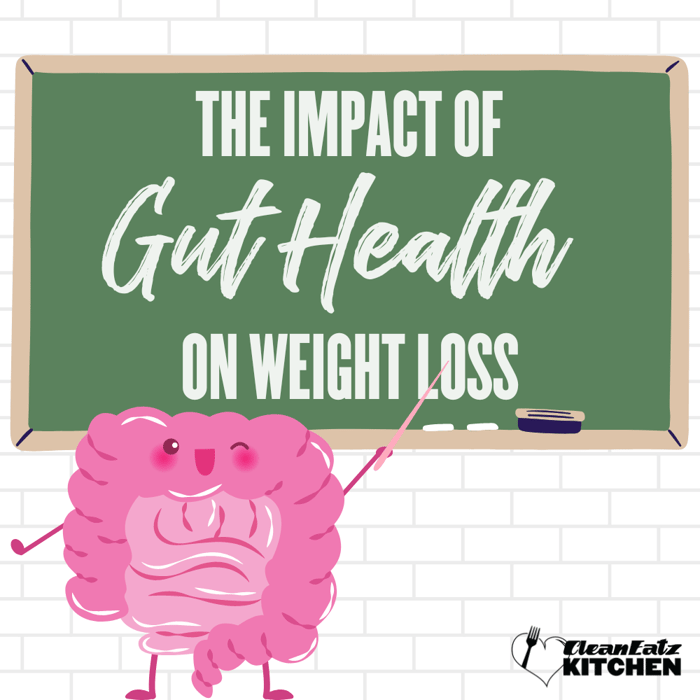
Is There a Link Between Genetics and Weight Loss?
Jason Nista
Weight Loss
6 minute read
Weight loss is a challenging endeavor, and the factors that contribute to it are numerous and varied. Genetics play a significant role in determining weight loss potential and understanding the relationship between genetics and weight loss is crucial for setting realistic goals and creating an effective weight loss plan.
This article will explore the following points:
- Genetics and weight loss
- How to work with genetics for weight loss goals
- Combining genetics and environmental factors
The Role of Genetics in Weight Loss
Does genetics affect weight loss? Absolutely. Genetics plays a significant role in influencing various aspects of weight loss, including the body's fat processing and storage, appetite regulation, and metabolism. Numerous studies have demonstrated the association between specific genes and weight-related factors. For instance, the FTO gene, also known as the 'fat mass and obesity-associated gene,' has been linked to an increased risk of obesity. Conversely, the ADRB2 gene, which regulates metabolism, has been associated with weight loss. Understanding the connection between genetics and weight loss can help tailor personalized strategies for effective and sustainable results.
Genetic testing is an option to determine an individual's weight loss potential. By analyzing specific genes, genetic testing can provide insight into an individual's risk of weight gain or obesity, as well as how they may respond to different types of exercise and diets. This can be useful in creating a personalized weight loss program that takes into account an individual's genetic makeup.
Working with Your Genetics to Achieve Weight Loss
While genetics play a significant role in weight loss, they do not solely determine its outcome. A well-rounded weight loss meal plan incorporates essential elements like diet and exercise. Nevertheless, comprehending one's genetic composition can facilitate the development of a personalized weight loss strategy that aligns with their distinct requirements and aspirations. Thus, the question that "Is weight loss limited by genetics" is not entirely accurate.
Setting Realistic Weight Loss Goals
Unrealistic goals can lead to disappointment and discourage individuals from continuing their weight loss journey. By understanding one's genetic makeup and potential for weight loss, it is possible to set more achievable and attainable weight loss goals.
Creating A Personalized Exercise & Nutrition Plan
Certain types of exercise and diets may be more beneficial for some individuals, while others may respond better to different types of diets and exercise. For example, individuals with a higher risk of obesity may benefit from high-intensity interval training (HIIT) rather than steady-state cardio. Genetic testing can provide insight into how an individual's body processes different macronutrients, such as carbohydrates and fats, which can help to create a weight loss diet meal plan that is tailored to their unique needs.
Overcoming Genetic Obstacles to Weight Loss
Genetics can play a significant role in weight loss, but this shouldn’t discourage you. By taking a holistic approach, it is possible to overcome even the most stubborn genetic predispositions.
One key to overcoming genetic obstacles is to focus on building a healthy lifestyle. This means making changes to diet and exercise habits that can be sustained over the long term. Crash diets and extreme exercise regimes are not sustainable and are likely to lead to weight regain.
Seeking professional help and support is also essential. Registered dietitians or personal trainers can provide personalized guidance and support to help individuals overcome genetic obstacles to weight loss. Additionally, a therapist or counselor can help to address any underlying emotional or psychological issues that may be contributing to weight gain.
Combining Genetics and Environmental Factors
While genetics and diet and exercise are important factors in weight loss, it is also important to consider the influence of environmental factors such as:
Stress
Stress can lead to weight gain by increasing the production of the hormone cortisol, which can increase appetite and lead to overeating. High levels of stress can also disrupt sleep patterns, leading to fatigue and a lack of motivation to exercise.
Lack of Sleep
Inadequate sleep can contribute to weight gain by disrupting hormone levels and metabolism. Scientific studies have shown that individuals who get less than 7 hours of sleep per night are more likely to be overweight or obese.
Social Support
Social support can also play a role in weight loss. Individuals who have a supportive network of friends and family are more likely to be successful in their weight loss efforts. They are less likely to feel isolated and more likely to have someone to hold them accountable for their goals.
It is crucial to address environmental factors in addition to genetics and diet and exercise when creating a weight loss plan. Stress management techniques such as meditation, yoga, or therapy can help to reduce stress levels. Prioritizing sleep by creating a bedtime routine, limiting screen time before bed, and creating a comfortable sleep environment can help to improve sleep quality. Building a supportive network of friends and family can provide accountability and encouragement.
Final Thoughts
In conclusion, weight loss is a complex journey influenced by numerous factors, including genetics. Understanding the link between genetics and weight loss is crucial for setting realistic goals and creating effective strategies. Genetic testing can provide insights into an individual's weight loss potential and guide personalized approaches to exercise and nutrition. Remember, each person's weight loss path is unique, and with the right strategies and support, anyone can overcome genetic predispositions and embrace a healthier lifestyle.
FAQs
How Do I Fight Genetics To Lose Weight?
To fight genetics to lose weight, focus on maintaining a healthy diet and exercising regularly. Genetics plays a role in your weight but lifestyle choices can improve your weight loss.
Can Genetics Keep You From Losing Weight?
Genetics can play a role in weight loss by influencing metabolism, appetite, and the body's ability to store fat. However, lifestyle choices such as diet and exercise can still lead to weight loss regardless of genetic predisposition.
How Can You Overcome Genetic Obesity?
Genetic obesity can be challenging to overcome, but it is not impossible. A combination of a healthy diet, regular physical activity, and behavioral changes can help in managing weight and improving weight loss.



